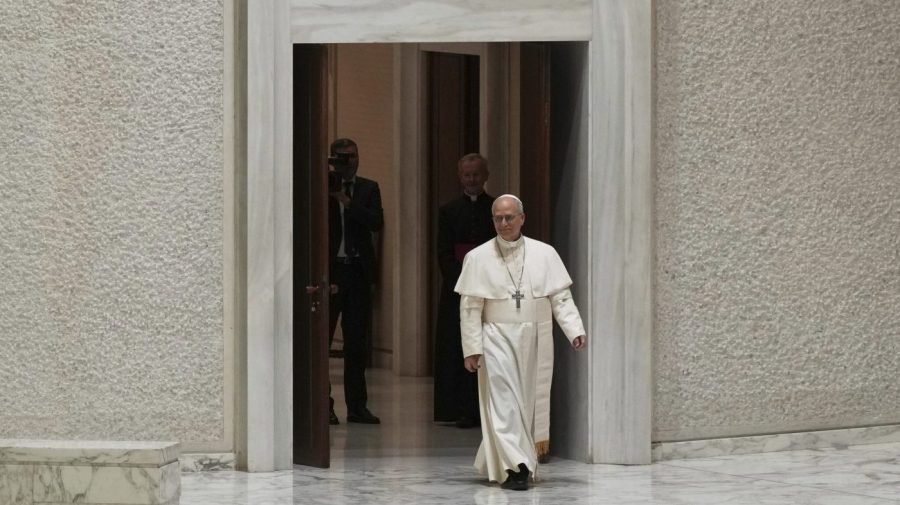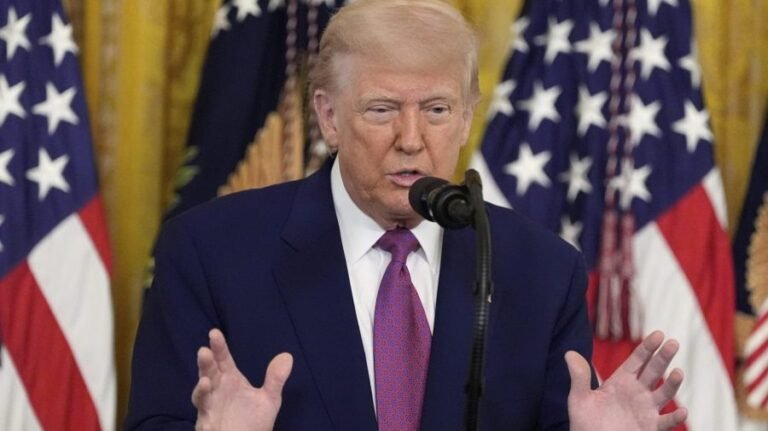
One thing we are sure about the first American Pope, Leo XIV, is that he was born and raised on the South Side of Chicago, as Carl Sandburg described the city, “stormy, husky and brawling,” “hog butcher for the world.”
The former Robert Prevost studied at Chicago’s Catholic Theological Union while teaching math and physics on the southwest side. He eventually became a missionary in Peru. It was there and in Italy that he spent most of his adult life.
President Trump, no fan of birthright citizenship, was quick to hail the American roots of the new pontiff. “To have the pope from America is a great honor,” he said.
Chicago may be Leo’s “kind of razzmatazz,” but the question on everybody’s mind is where does he stand on hot-button political and social issues such as immigration, gay marriage, abortion, celibacy of the clergy and transgender rights.
What kind of pope will Leo XIV be? There are a few signs and portents. The choice of a papal name has always been significant since Jesus told a Jewish fisherman named Simon that he would be called Peter, the “rock” upon whom Christ would build his Church.
Why did Prevost choose the name Leo XIV? Perhaps it was because of Leo XII, who ruled from 1823 to 1829 — known for his moral rectitude and expectation that others would emulate his high standards. He was a deeply conservative ruler, who enforced many controversial laws, including one forbidding Jews from owning property.
The Vatican said that the pope chose the name as well because the first Pope Leo, who reigned from 440 to 461. Known as Leo the Great, he was successful in mediating the Church’s several global divides.
Leo XIV faces the task of reconciling a fractured American church where ordinary Catholics (many lapsed since the sexual abuse scandals involving the clergy), an influential right-wing Catholic press and Catholic power in Washington are often engaged in a Chicago-style brawl. They can’t seem to agree even on whether the new pope will be a progressive and a reformer in the tradition of his predecessor Pope Francis or a conservative like some of the other popes gone by, as many liberal Catholics fear.
The new pope arrives at a time of an astonishing resurgence in America of a reactionary Catholicism. More than one-third of Trump’s Cabinet members are Catholic. So are two-thirds of the Supreme Court, which has issued a series of rulings making more porous the wall of separation between church and state.
In February, Pope Francis. just months before he died, harshly criticized Trump’s draconian immigration policies, calling them a violation of the “dignity of many men and women, and of entire families.” You don’t have to be the pope to arrive at that conclusion.
Pope Leo is seen as likely to follow suit. In April, an X account identified with the new pontiff made a post critical of the Trump administration’s “illicit deportation” of Kilmar Abrego Garcia, the man Trump illegally rendered to El Salvador in March.
“This pope is clearly going to keep speaking out for justice, for peace, refugees, the poor and the hungry,” seasoned Vatican analyst Rev. Thomas J. Reese said. “If this gets him in trouble with the Trump White House, so be it.” A right-wing Catholic website published “5 worrying things you need to know about Leo XIV,” including his criticisms of Trump’s immigration policies.
Leo’s American brief is to unify the warring tribes of U.S. Catholics, whose political divisions have frustrated the purpose of his predecessors. Charlie Camosy, a Creighton University theologian, comparing Leo with Pope Francis, told the Washington Post: “Pope Leo XIV’s critiques, praise, and invitations to dialogue will come from a place of knowing the U.S. in a far more intimate way.” As the song goes, “each time I roam, Chicago is calling me home.”
Francis engaged in a battle of words with Trump during his papacy over aid to migrants. If Leo decides to adhere to Catholic orthodoxy when it comes to same-sex marriage, it would alienate Catholics who see God as prioritizing inclusion and mercy. If he follows Francis’s position on immigration, he could anger theologically traditional Catholics who have sided with Trump politically.
Denise Murphy McGraw, co-chair of the liberal U.S. group Catholics Vote Common Good, sees Leo as a likely ally, especially given his American upbringing. “We have someone now who understands even better, because he understands us,” she said.
But Ashley McGuire of the Catholic Association, which promotes Catholic teaching on abortion, saw something a bit different ahead for the Church in America. “He takes his name from a pope who stood firmly against the negative culture of moral relativism,” she wrote.
We don’t know yet which path this South Side Chicagoan will take, a more liberal church or a rejection of the “negative culture of moral relativism.” The choice is his. The hope is that he will be a gentle figure in a happier age. To quote Longfellow: “Humanity with all its fears, with all the hopes of future years, is hanging breathless on thy fate!”
James D. Zirin, author and legal analyst, is a former federal prosecutor in New York’s Southern District. He is also the host of the public television talk show and podcast Conversations with Jim Zirin.


